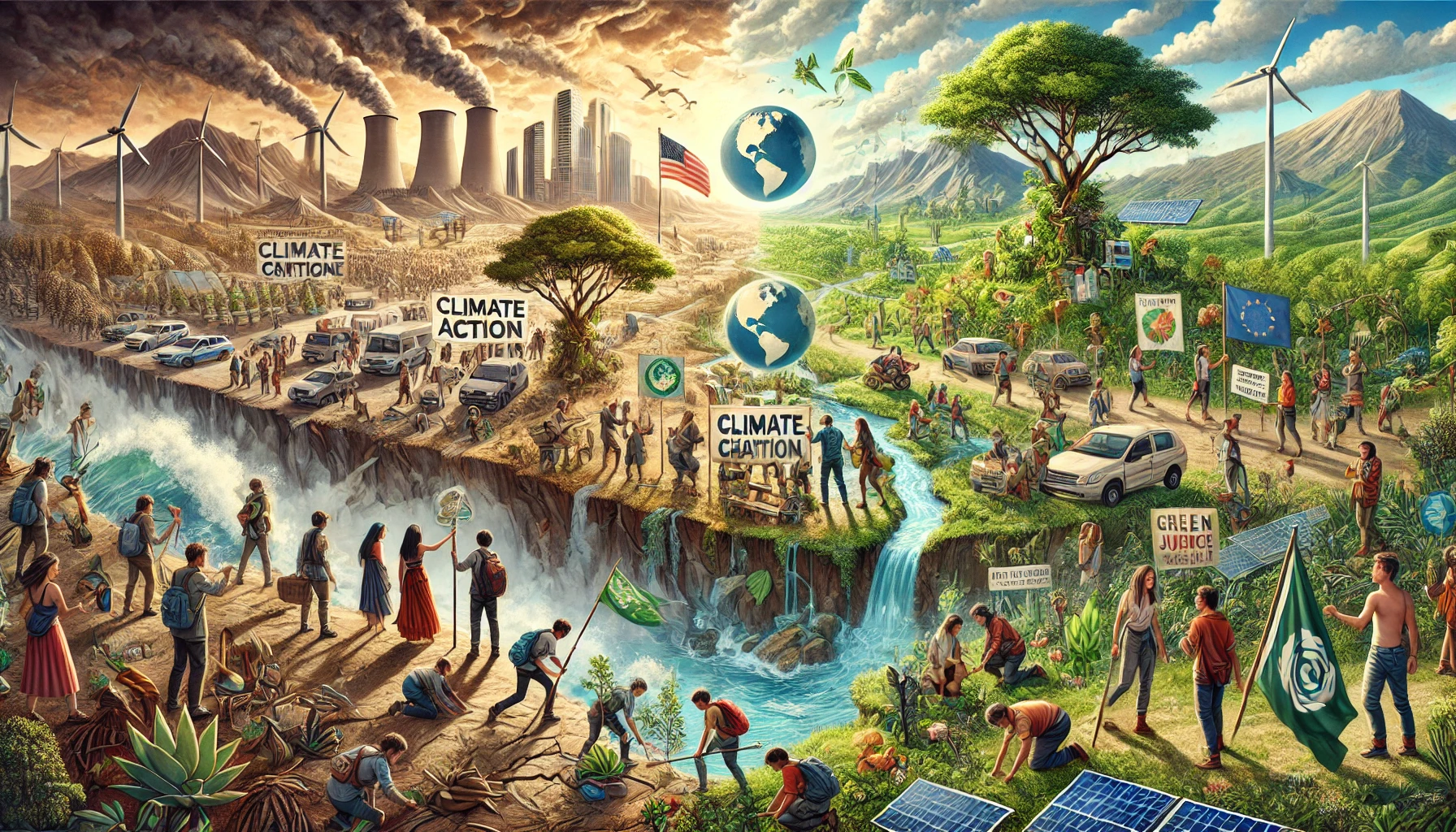The Critical Role of Youth in Addressing Climate-Related Security Risks
The UNDP's policy paper highlights the critical need to meaningfully engage and empower young people in addressing climate-related security risks, particularly in fragile regions. It emphasizes youth as key agents of change in climate action, peacebuilding, and decision-making processes.

The United Nations Development Programme (UNDP), through its Crisis Bureau’s Conflict Prevention, Peacebuilding, and Responsive Institutions (CPPRI) team, has produced a policy paper spearheaded by Anab Ovidie Grand, highlights the pressing need to engage young people meaningfully in addressing the nexus of climate change, peace, and security (CPS). The paper, drawing on insights from interviews with global experts and the contributions of UNDP Youth Team members, focuses on the disproportionate impacts that climate-related security risks pose for young people, especially in fragile and conflict-affected settings. It also stresses the potential for youth to act as agents of change in creating solutions to these intertwined challenges.
Climate-Induced Displacement: A Growing Crisis
The report makes it clear that young people are particularly vulnerable to the cascading effects of climate change. Climate-induced forced migration and displacement are a primary concern, with young people often the first to be uprooted when their communities face environmental degradation. This forced mobility disrupts social cohesion, places youth at greater risk of exploitation, and intensifies vulnerabilities in already fragile regions. For instance, in places like Jordan and the Pacific Islands, young refugees and displaced persons struggle to integrate into host communities, which can exacerbate social tensions. The economic impacts of climate change further strain young people’s opportunities for employment. Regions like Nigeria, where 70% of the population is under 30, are especially hard-hit. Climate-driven disasters damage infrastructure and livelihoods, leaving young people, already facing high unemployment rates, with few prospects. This economic instability often leads to frustration and can fuel social unrest. The paper highlights that when young people face a lack of positive future prospects, they may turn to illicit activities or fall prey to recruitment by extremist groups, as has been observed in parts of Nigeria and Somalia.
Emotional and Mental Health Toll of Climate Stress
The emotional toll of climate-related stressors, compounded by conflict, is another key issue. Living under the constant threat of climate disasters and in conflict-ridden environments takes a significant toll on the mental health of young people. The psychological burden of these stressors often leads to heightened anxiety, depression, and emotional distress, especially in regions where mental health services are scarce. For example, in South Sudan, young people experience compounded emotional stress due to prolonged civil wars and successive climate shocks, such as floods, which further destabilize their communities. Additionally, climate change disproportionately impacts young women and girls, making them more vulnerable to sexual and gender-based violence, trafficking, and forced marriage. Extreme weather events and environmental degradation often force families in fragile settings to resort to early marriage as a means of economic survival, as seen in Bangladesh’s coastal regions. This increases the risk of exploitation and abuse for young women and girls, further entrenching gender inequalities.
Young People as Agents of Change
Despite these severe challenges, the report emphasizes the resilience and agency of young people in responding to climate-related security risks. Far from being passive victims, young people around the world are actively involved in climate activism and peacebuilding efforts. The "Fridays for Future" movement, which mobilized millions of young people globally in 2019, is one example of youth leading the call for urgent climate action. In South Sudan, where 72% of the population is under 30, young people play a crucial role in advocating for both climate resilience and peacebuilding. However, the report notes that despite their active participation, young people are often excluded from formal decision-making processes at both national and international levels. This exclusion not only limits their potential contributions but also weakens the overall effectiveness of climate and security policies.
Strategic Shift Towards Youth Inclusion
The UNDP’s paper calls for a strategic shift to fully integrate young people into CPS policy and programming. It advocates for enhancing access to CPS information, education, and skills development, particularly in vulnerable regions where youth are most affected by climate change. Additionally, the report stresses the importance of intergenerational dialogue and collaboration to bridge the gap between older generations, who often dominate policy discussions, and younger generations, who bring fresh perspectives and innovative solutions. Digital technologies and communication tools can play a critical role in amplifying the voices of young people and engaging them in decision-making processes. The report also highlights the need for targeted investments in youth-centric livelihood opportunities, particularly in sectors like sustainable agriculture and renewable energy, which can help young people build resilient communities while addressing climate change.
Empowering Youth for Lasting Solutions
Ultimately, the policy paper emphasizes that young people should be recognized as equal partners in addressing climate-related security risks. Their inclusion in decision-making processes is not just beneficial but essential for creating sustainable, long-term solutions. The report underscores that investing in young people’s education, skills, and leadership in CPS will enable them to drive the change needed to mitigate the impacts of climate change and build lasting peace in their communities. By meaningfully engaging youth, empowering them to take on leadership roles, and ensuring their voices are heard in policy discussions, the international community can better respond to the pressing challenges of climate change, peace, and security. The UNDP's findings set the stage for future initiatives that place young people at the heart of global efforts to build a more resilient and peaceful world.
- FIRST PUBLISHED IN:
- Devdiscourse
ALSO READ
UK Contributes GBP 11M to UNDP for 2024 to Boost Global Sustainable Development Efforts
UNDP and JICA Strengthen Partnership to Boost Socio-Economic Resilience in Iraq
GEF Approves $204.3 Million for UNDP’s Global Climate and Nature Projects
AIM, UNDP Launch Youth Co:Lab 2024-2025 to Empower Disability-Inclusive Innovation










